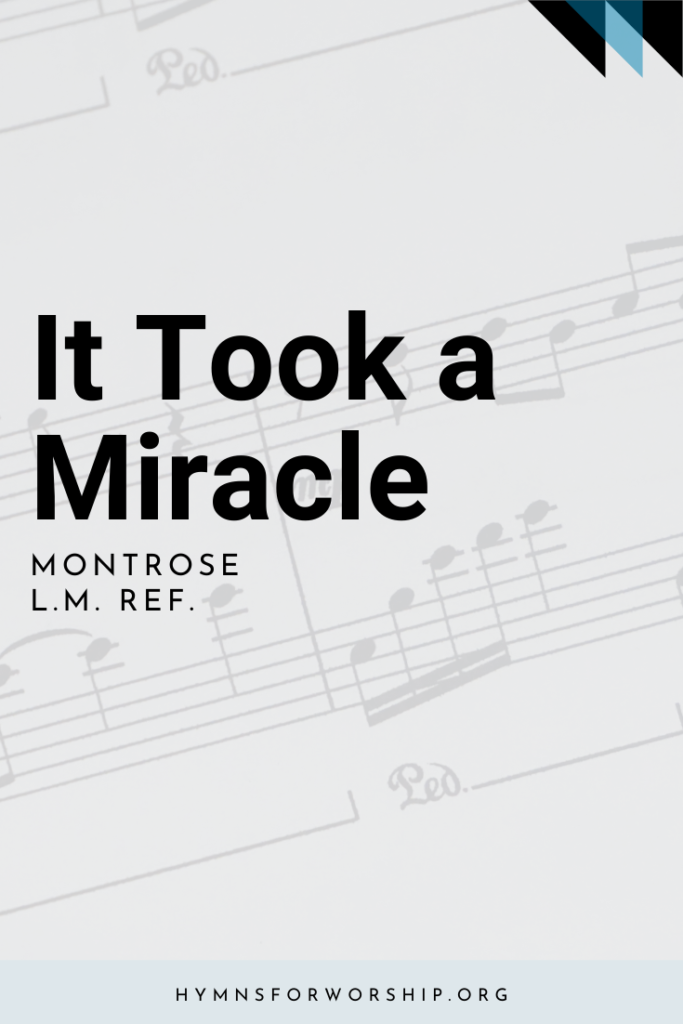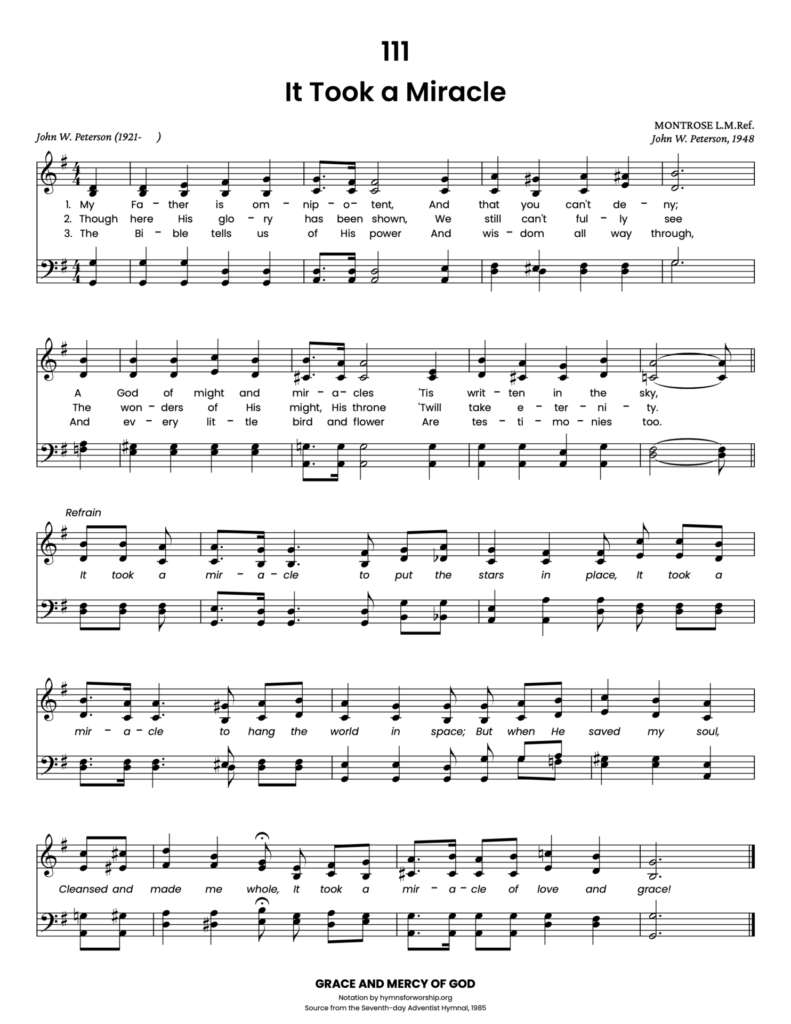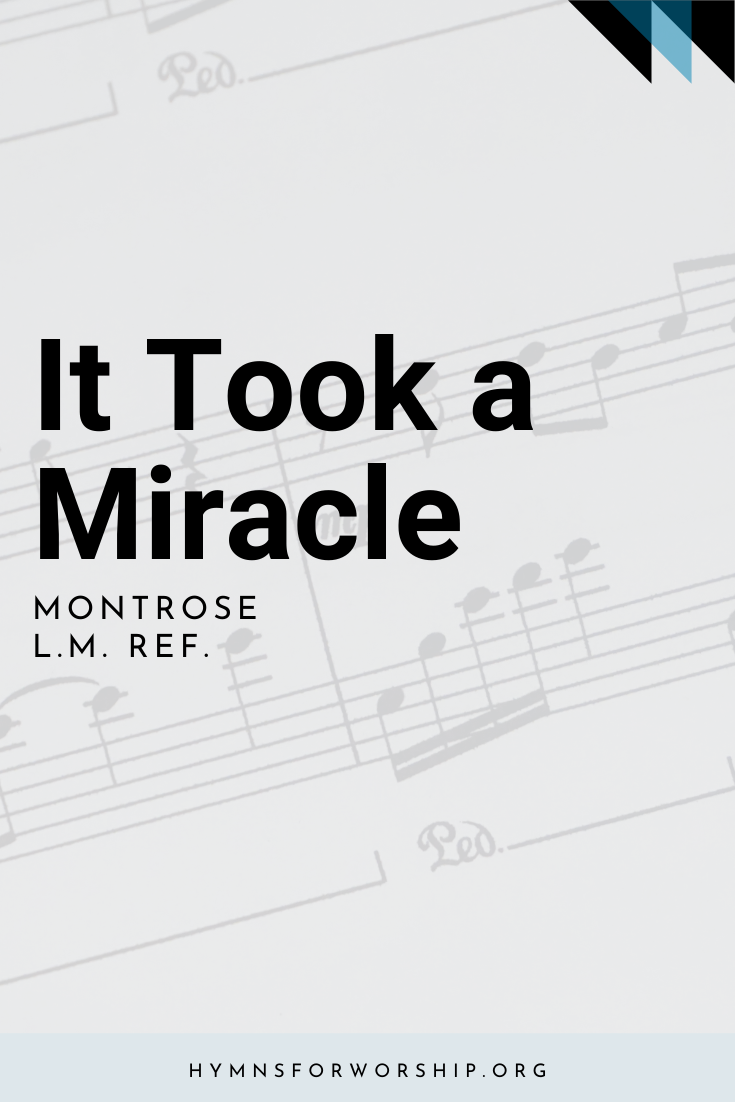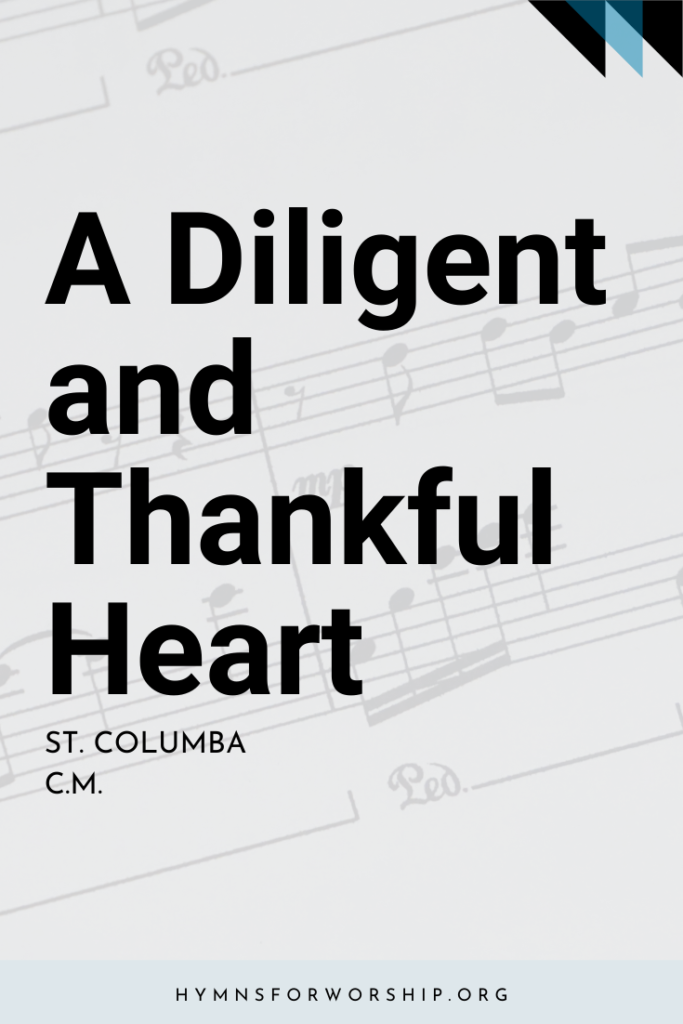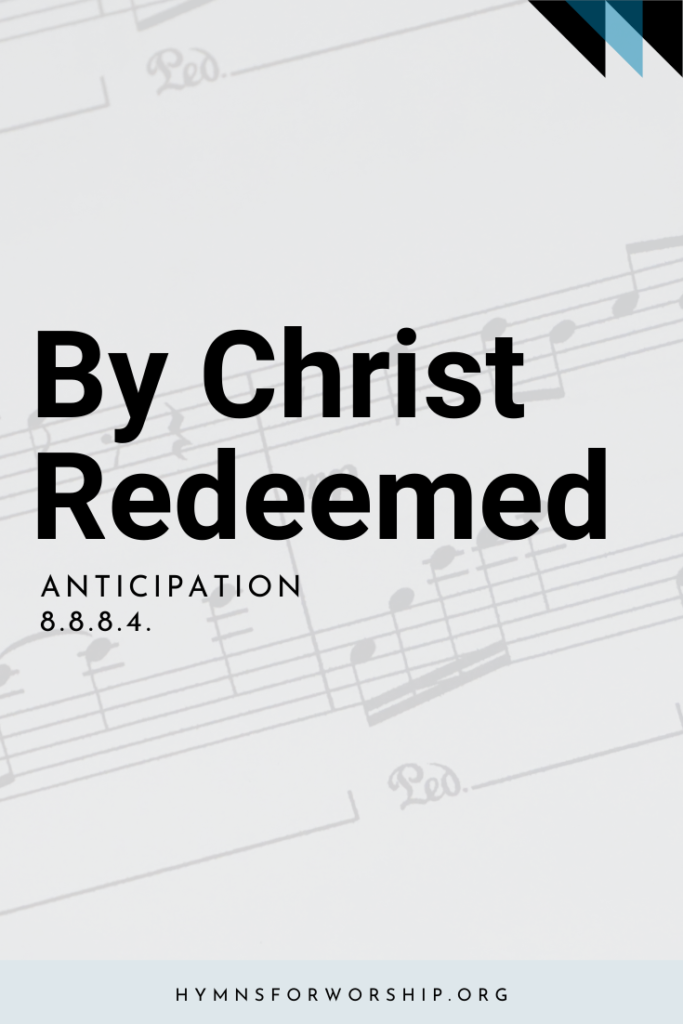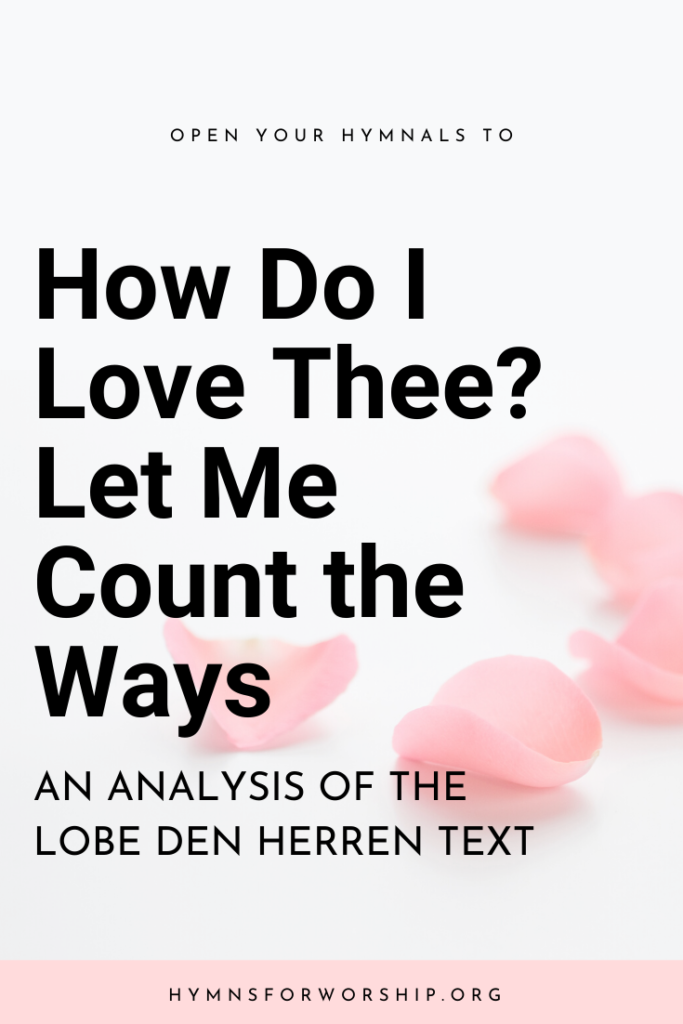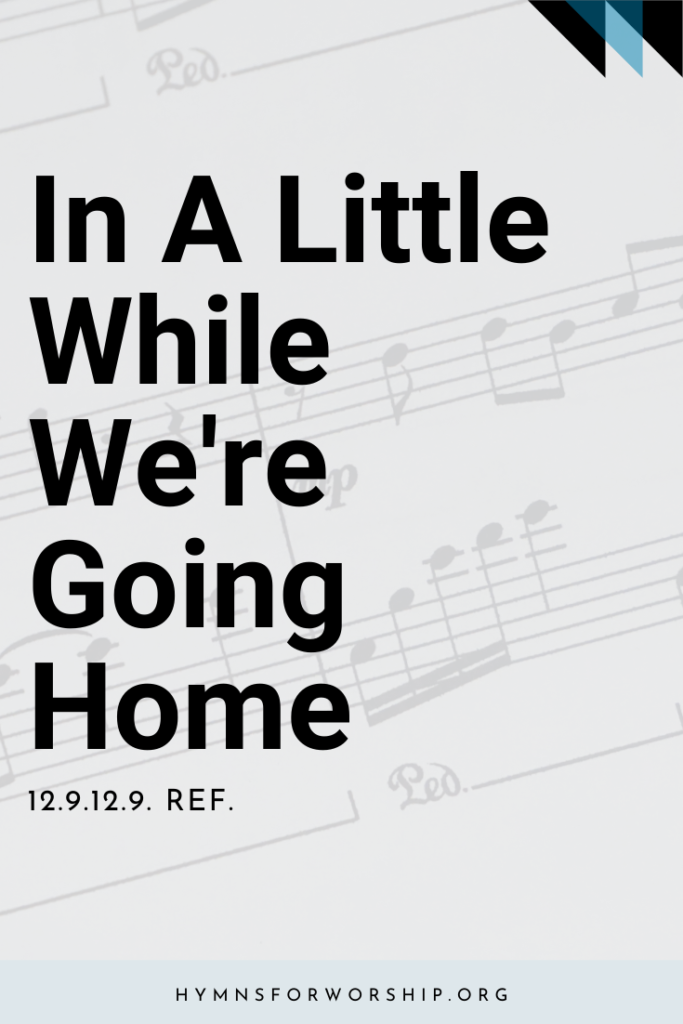John W. Peterson, the writer of the words and music of this song, is probably the world’s most well-known gospel song composer now living—in fact, he has been called “Dean of the Christian Composers.” More than 1,000 hymns and gospel songs have come from his prolific pen, and more than 8 million of his 25 cantatas are in circulation. The youngest child of a Swedish-American family, he was born November l , 1921, on a farm near Lindsborg, Kansas. With father and mother and all seven children gifted in singing and playing musical instruments, the house was full of music! John developed a fine voice, and sang in the Covenant Church choir under brother Rudy’s direction, with sister Mary at the piano. A few years later his brothers became evangelists, with John leading the singing, But he did it with such enthusiasm that, combined with inexperience and overuse, his voice was damaged beyond repair. He says, “If that had not happened, I might never have developed as a writer. With my voice damaged, I turned more and more to writing, and that talent was allowed to emerge and develop.
By the time he finished high school, writing songs was the big thing in Peterson’s life. He was paid $8 for his first published song, “Yet There Is Room,” published in 1940 by R. E, Winsett of Dayton, Tennessee. In 19 42 he joined the Air Force and became a pilot, flying cargo over the Himalaya Mountains, called the ‘ ‘China Hump.” Coming home with more than 50 songs in his notebook, he attended Moody Bible Institute, Chicago, where he worked on radio station WMBI. ( (It Took a Miracle” was used in 1948 on the national television program Young People’s Church of the Air, hosted by Percy Crawford, who paid John $40 for the song. It was an instant success, and was recorded by many famous artists, making it for several years the number one gospel song in America.
After earning a B.Mus. at American Conservatory, Chicago, in 1951, Peterson joined Alfred B. Smith as editor and composer for Singspiration, Inc., of Montrose, Pennsylvania. He served as president of the company in 1963 when it was acquired by Zondervan Publishing House, Grand Rapids, Michigan. In 197 1 he became “executive composer,” and moved to Arizona, where he continues writing, editing, and publishing. Great Hymns of Faith, 1968, was produced under his guiding hand. He has received three honorary doctor’s degrees: from John Brown University, 1967; from Western Conservative Baptist Seminary, Portland, Oregon, 197 1; and from Grand Canyon College, Phoenix, Arizona, 1979. He is president of John W. Peterson Music Company, in which his whole family of three daughters and a son are involved.
In his autobiography The Miracle Goes On, he tells about the writing of “It Took a Miracle “: “I sat in a classroom at Moody [Bible Institute] one day when the lecturer said something that started me thinking in a concentrated way about the grace and love of God as seen in the work of Calvary, and about the tremendous transforming power of that work in the life of a believer. Soon I lost contact with the lecture, and my mind turned back to my childhood when I had seen the radical change in the lives of my brothers Bob and Bill through the power of the gospel. I relived my own conversion—to me such a miraculous thing—and the subsequent chain of events through which I lost my singing voice and turned more and more to writing.
“My thoughts raced on to the flights over the Himalayas, the spectacular power of God revealed in those electrical storms, the majesty of the mountains themselves, the incredible variety of the jungle, and thestar-filled nights of dazzling beauty high in the air.
“As these scenes flashed through my memory, I began to focus on the element of the miraculous in all of God’s work, creation, and redemption. The words of a song were forming in my mind, and before the class period was over, the chorus was all thought out. I hurried over to the music building, found a vacant studio, and started to write:
My Father is omnipotent
And that you can’t deny; etc.
” [When the song was finished,] with a sigh of satisfaction I hummed the tune over a few times and then tucked it into a folder with some other compositions. Soon afterward Mr. Loes told me he had mentioned my work to Percy Crawford.” For the fit-st 28-year period of the copyright, that initial $40 was all Peterson received for a song that earned many thousands of dollars for the publishers. But the copyright law allows the composer to regain his rights to a song for the renewal period, so now he owns his most popular work.
Peterson also wrote the tune TORONTO, which appears in SDAH 578 ![]() “So, Send I You.”
“So, Send I You.”
